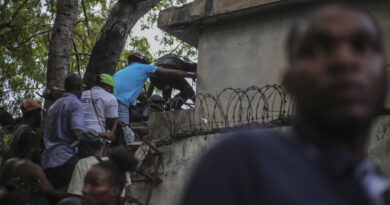Shortage of Staff Threatens to Worsen Rural Birth Care Crisis
Severe staff shortages have pushed one rural birthing unit to the brink, facing one disaster after another.
Another maternity service in a farming town of 15,000 shut down just four years after opening, forcing specialists and medical workers to leave town.
Locum doctors who fly in and out support two birthing units in a prosperous agricultural district in northern New South Wales (NSW).
These are just some of the tales highlighting the state of maternity care in rural NSW, which has prompted a parliamentary committee to warn of an impending crisis.
“A decline in rural maternity services is harmful for women, their families, and the broader health system in remote, rural, and regional NSW,” states the parliamentary committee’s report published on March 27.
“Due to unavailable or understaffed birthing and obstetric services, women are being forced to travel hundreds of kilometres.”
Nationwide, half of Australia’s birthing units closed between 1990 and 2015, with only 15 percent of obstetricians working in rural areas.
The NSW committee has been investigating progress in rural health care following a critical 2022 inquiry, which revealed poor medical outcomes in country areas.
The committee’s second report, focusing on maternity care, mental health services, and paediatricians in rural areas, presents an equally grim picture three years later.
Many paediatricians in regional public hospitals can no longer see non-emergency patients, leaving children with developmental conditions without care.
Waiting times to see a public paediatrician in regional areas range from 18 months to six years.
Royal Far West, a charity aiding rural families, testified that children with developmental delays are identified at age 10, making their conditions harder to treat.
Rural mental health and drug and alcohol services remain strained due to staff shortages, showing no improvement since the 2022 inquiry, according to the committee.
While NSW Health executives claim reforms have been made to enhance rural care, the report suggests a significant gap between the government’s perspective and the experiences of staff and patients.
The committee’s 32 recommendations include urgently assessing rural maternity units to develop plans for reinstating services.
Acknowledging that obstetricians view rural work as dangerous and undesirable, the committee suggests collaboration with training colleges to address barriers.
Audits and investigations of cancer care, palliative care, and drug and alcohol services are also advised.
The NSW government will address the report officially at a later date.





